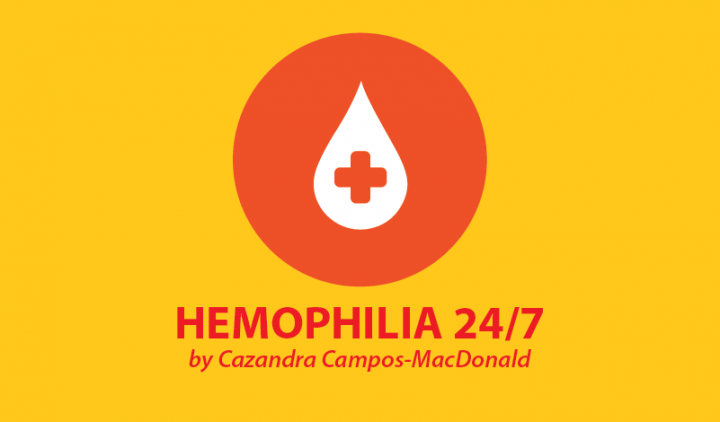Bleeding Disorders Awareness Month: Being Present

“I’m so sorry. What can I do? I am here if you need me.”
When we hear bad news about someone we love, most of us struggle to find the right words to comfort the one hurting. Sometimes, the best words are no words at all. It just depends on your relationship with the person.
When my sons were diagnosed with hemophilia I was devastated, both times. It was not easier the second time. Not at all. Well-meaning friends and family would try their best to help me feel better, but their words often fell on deaf ears. I was in pain and tremendous grief. I couldn’t feel anything.
Once I adjusted to the diagnosis, I began to find my new “normal” in the world of hemophilia. So many times, people have come up to me to say, “I don’t know how you do it, Cazandra.”
Sometimes I’ve wanted to say, “I don’t either and it is awful!” I was never sure what they expected me to say, but my answer was always, “You do what you have to do for your child.” It’s not that I was given a choice to handle hemophilia or not. It was something that I needed to do whether I was kicking or screaming or not.
When you approach a person raising a child with a chronic illness, your best intentions may come across in a negative fashion. Don’t pressure yourself into saying the right words because sometimes words are meaningless. Tell them you love them, that you are sorry they have to deal with this condition, and just give them a warm embrace. An embrace, like a picture, is worth a thousand words. Being present is priceless. There is a fine line between sympathy and empathy. It is not empowering to feel sorry for someone without having any shared perspectives. On the other hand, when you feel and recognize the feelings of others, your empathy is appreciated.
March is Bleeding Disorders Awareness Month. Patients and families who live with bleeding disorders post facts on social media and share their stories to educate those with little understanding of how a chronic disorder affects daily life. When you hear a story, take a moment to try and relate to the experience. The storyteller needs to be heard. Take a moment to listen and begin to understand their journey. Lending an ear as a supportive friend and confidant could be exactly what they need.
***
Note: Hemophilia News Today is strictly a news and information website about the disease. It does not provide medical advice, diagnosis, or treatment. This content is not intended to be a substitute for professional medical advice, diagnosis, or treatment. Always seek the advice of your physician or another qualified health provider with any questions you may have regarding a medical condition. Never disregard professional medical advice or delay in seeking it because of something you have read on this website. The opinions expressed in this column are not those of Hemophilia News Today or its parent company, BioNews Services, and are intended to spark discussion about issues pertaining to hemophilia.








Comments